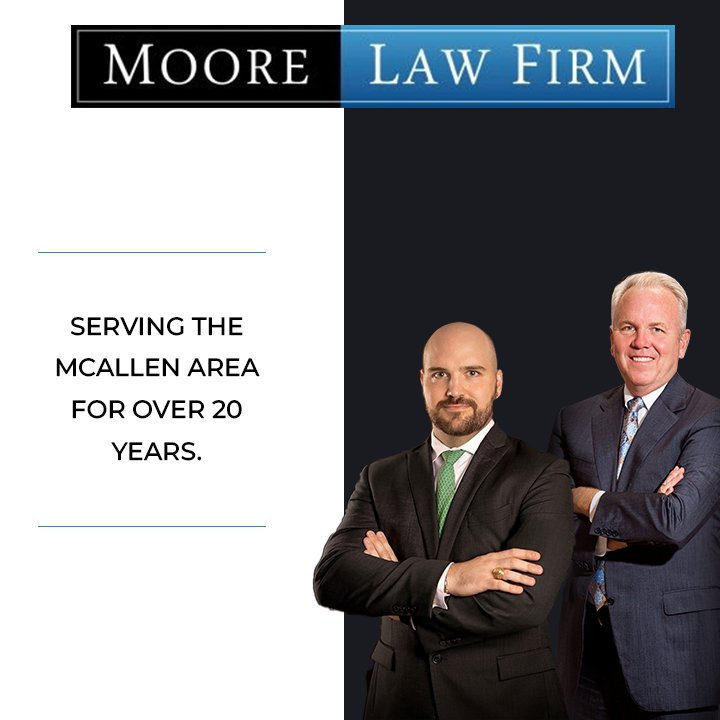You Need An Attorney RIGHT NOW!
When you or a loved one suffer injuries due to the negligent or reckless behavior of another, the results are often overwhelming. Beyond physical recovery, accidents create numerous personal and financial issues. The Moore Law Firm helps individuals and their families receive financial compensation for personal injuries and continue forward with their lives. From car accidents and construction accidents to medical malpractice, we have you covered for all accident and personal injury claims in McAllen.
McAllen’s Experienced & Aggressive Lawyers

Honors & Awards




Areas of Practice

Personal Injury
If you have suffered from injuries due to an accident caused by someone else’s negligence...

Car Accidents
Car accidents can be life-altering, leaving victims with physical and emotional injuries...

Wrongful Death
Losing a loved one in a fatal accident due to the negligence of another person or entity...

Motorcycle Accidents
If you were involved in a motorcycle accident that was not your fault, you may be entitled...

Brain Injuries
Brain injuries can significantly impact a person’s life, often causing physical, emotional...

Construction Accident
Construction sites can be dangerous places to work, and accidents can happen even when the proper...
Local McAllen
Personal Injury Lawyers
When you need help recovering compensation for your damages, one of the most important things to consider is who you want to hire as your attorney – and with so many options, that’s a decision you must take seriously.
If you want your case handled the right way, you need a legal team with an established record of success and a reputation for getting results. Let the attorneys at the Moore Law Firm put their experience to work for you. We’ve been serving the McAllen area for over 20 years.
Hiring a McAllen
Car Accident Lawyer
CALL NOW
Get in Touch to Discuss your Legal Issue
Fill out the contact form below

